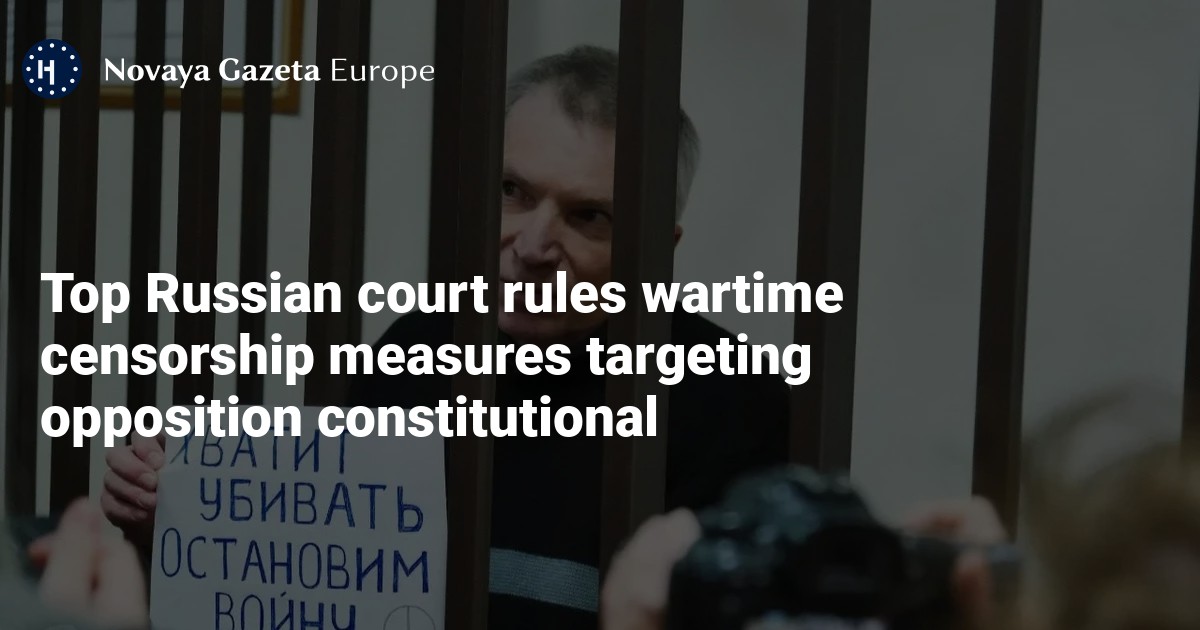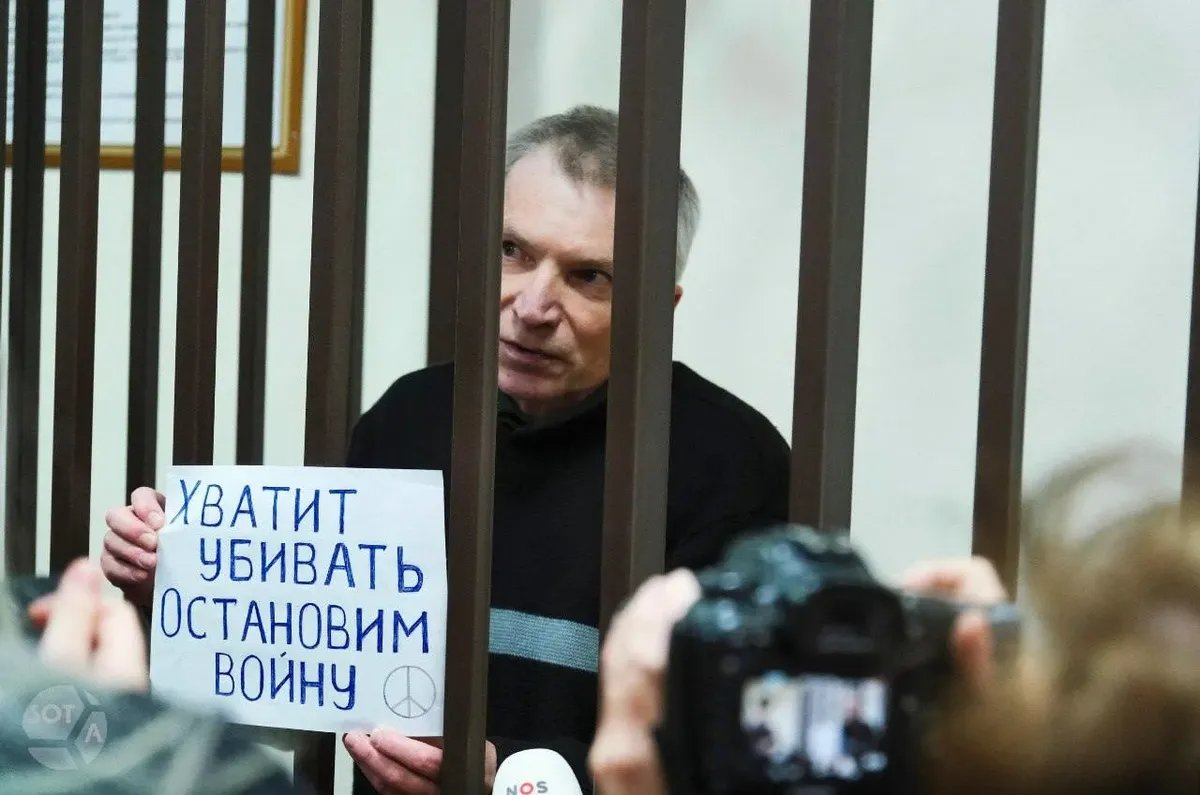




Alexey Gorinov holds up a sign reading “Stop killing. End the war” at a court hearing in Vladimir, Russia on 27 November 2024. Photo: SOTAvision
Russia’s Constitutional Court has upheld the legality of wartime censorship laws, ruling that a controversial statute on spreading false information about the military is constitutional, even as it continues to be used to jail critics of the war in Ukraine, human rights group Memorial reported on Tuesday.
The decision comes in response to a legal challenge filed by the defence team of jailed opposition deputy Alexey Gorinov, 63, who was sentenced to seven years in prison in 2022 for calling Russia’s invasion of Ukraine a war and mourning the deaths of Ukrainian children at a council meeting.
Human rights groups Memorial and OVD-Info, who supported the appeal, argued that the law is being weaponised to silence dissent and punish anti-war speech under the guise of combating disinformation.
The court, however, maintained that the law allows for criticism of the army — so long as it does not entail the “deliberate spread of false information” — and found that Gorinov abused his status as an elected official by opposing the war against Ukraine, thereby stripping himself of immunity and justifying harsher punishment.
“If a deputy knowingly spreads false information, in the opinion of the authorities, then his words attract more attention. … In these cases, according to the law, the punishment for a deputy should be stricter than for an ordinary person,” the Constitutional Court decision said.
Introduced days after the full-scale invasion of Ukraine in 2022, the law has allowed the Kremlin to silence opposition and criminalise independent speech. It has led to the prosecution of dozens of journalists, activists, and ordinary citizens for acts as minor as calling the war a war or sharing information about Russian military atrocities from non-state sources.
Prominent cases include that of journalist Maria Ponomarenko, sentenced to six years in prison for a Telegram post about the bombing of a Mariupol theatre, and artist Sasha Skochilenko, who replaced supermarket price tags with anti-war messages and received seven years in prison, before she was released in an August 2024 prisoner exchange.
Gorinov, a former local councillor in Moscow, became the first person to receive a custodial sentence under the law when he was sentenced to seven years in prison in July 2022. While receiving treatment in a prison hospital, an informal conversation was secretly recorded by an informant, leading to new charges of “justifying terrorism” and an additional three-year sentence. Gorinov, who has remained outspoken about the war despite the risks, has been designated a “terrorist and extremist” by the Russian authorities.
